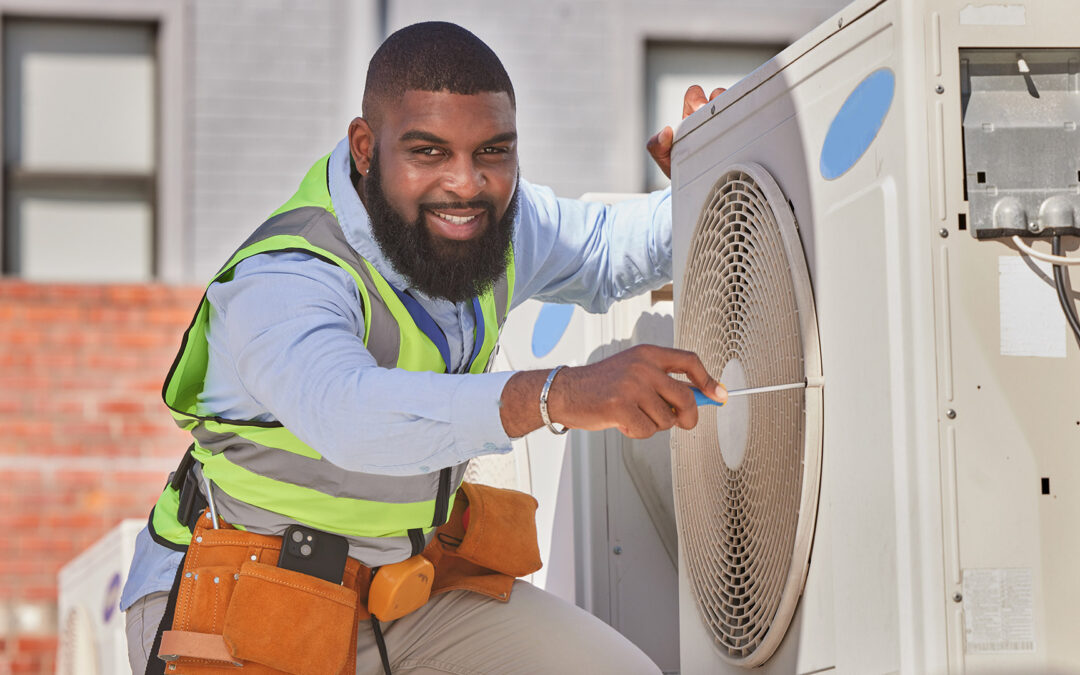A/C Service
As we get into the spring and summer months, preparing your HVAC or A/C system is important. Over the winter, contaminants like mold, mildew, and dust can build up in the system while insects and vermin can invade, leading to increased costs and potential health risks. A well-maintained system not only saves energy and lowers your electrical bill, but also effectively filters airborne pollutants, promoting healthy indoor quality. Servicing your unit annually can significantly increase the system’s lifespan, translating to long-term cost savings.
A/C Unit DIY Checklist
While hiring a professional is recommended, there are straightforward tasks you can do to service your A/C or HVAC system.
Inspect and Clean Outdoor Unit (Condenser)
During operation, the condenser allows the refrigerant to cool off while circulating the system. After turning off the power to the unit, use a garden hose to wash off any dirt or debris on the outside, being careful not to damage any of the fins inside the unit.
Change Air Filters
The simplest way to improve your A/C efficiency is to change air filters. Check your air filters often and replace them at least every three months or if there is a lot of buildup.
Test Thermostat
Depending on the system, your thermostat measures the ambient temperature in the house and adjusts the airflow to maintain a specific temperature. However, if you hear the system turning off and on too frequently or not keeping the temperature you want, you may need to have it serviced or replaced. Could be as simple as changing out the batteries. Also consider buying a programmable thermostat for better temperature control.
Clean Air Vents and Registers
Central air conditioning units force warm or cool air through vents and draw air back into the system through registers, to be heated or cooled again. These can become blocked with dust and debris. Depending on the type of vents and registers, you may only need a vacuum cleaner with a brush attachment to clean in and around them. Some vents may have filters. You will want to soak them in soapy water or replace them entirely. This will improve both air quality and efficiency.
Calling a Professional
It is important to know when you should call a professional. While some tasks can be easy enough to accomplish by yourself, others may be more complicated or dangerous to do yourself.
Ductwork Inspectional & Cleaning
While it is fairly easy to clean vents and registers, ducts require specialized equipment and expertise. Damaged ductwork can leak air, reducing your system’s ability to heat or cool your home. Dropping something inside the duct, like a vacuum attachment or broom, can also cause damage and require a professional to retrieve and repair.
Refrigerant Inspection & Refilling
Proper maintenance of refrigerant levels and lines is crucial for efficiency and effectiveness. Improperly maintained or serviced refrigerant lines can leak, causing a dangerous buildup of gases and a reduction in efficiency.
Air Flow Assessment
Professional technicians use an anemometer to measure airflow and diagnosis airflow issues. Poor airflow can lead to strain on your system and higher energy costs.
Electrical Systems
Professional servicemen can inspect your system’s electrical components to ensure your system is running correctly and safely.


